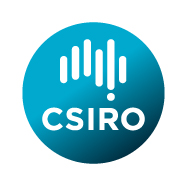Data-driven smart buildings
ADRENALIN 2024 competitions
Winners Announced for ADRENALIN 2024 Data Competitions
Load Disaggregation Challenge: Energy Use in Buildings
The Load Disaggregation Challenge attracted innovative approaches to improving the accuracy of disaggregating energy consumption data in buildings. Congratulations to the top 3 winners who delivered exceptional results in this challenge!
The winners are:
Rafaelzimmermann
Xieyangxinyu
Cteceliker
BOPTEST Challenge: Smart Building HVAC Control
The BOPTEST Challenge focused on optimizing smart building HVAC control strategies. Our top 3 winners impressed us with solutions that push the boundaries of energy efficiency in building management systems.
The winners are:
Szwsjc
Human
School_boy
Prize Rules
The competition offers three prizes to reward excellence in the development of innovative algorithms for load disaggregation and smart building HVAC control.
The three prize winners will be chosen based on the evaluation criteria detailed in the Evaluation Criteria section of each competition, considering both quantitative and qualitative aspects of their submissions.
Each prize winner will receive a total of 10,000 euros, paid out as an honorarium. The prizes will be distributed in two installments. The first 5,000 euros will be awarded immediately upon the announcement of the winners. The second 5,000 euros will be paid after a three-month knowledge transfer period with the sponsoring companies. During this period, winners are required to be available to answer any questions and provide insights about their algorithms to the competition consortium, ensuring a smooth transition and implementation of their innovative solutions. If a winner fails to fulfill this requirement, the second installment will not be paid.
The honorarium will be split equally among the members of a team if the winner is a team rather than an individual. Please note that a single individual can only be part of one team and is eligible to receive only one prize.
NOTICE: By submitting your results, you agree to make your algorithm available as open source under the BSD-3 license agreement (https://opensource.org/license/bsd-3-clause), in the case you are selected as one of the winners.
General Evaluation Criteria
The evaluation process will proceed as follows: First, all submissions are ranked according to their quantitative scores. Then, starting from the top scores, a qualitative evaluation is conducted. If a submission fails the qualitative evaluation, it is disqualified, and the next highest-ranked submission is evaluated. This process continues until three winners are found. For more detailed information, please visit the individual competition webpages.
General Timeline
The competitions are divided into three phases:
- Phase I – Training Phase: Running until 15 September, this phase aims to give participants time to develop their algorithms.
- Phase II – Competition Phase: Running from 23 to 30 September, this phase provides new datasets and emulators on which the participants’ algorithms will be evaluated.
- Phase III – Knowledge Transfer: After the winners have been selected, this phase involves a knowledge transfer period, where winners will work with the sponsoring companies to ensure a smooth transition and implementation of their solutions.
More details are given in each competition’s description.
Competition Rules
To ensure that the competition is conducted in a fair and ethical manner, and that all participants should hold to a high standard of conduct:
- Respect: Participants are expected to treat others with respect, regardless of their background, identity, or affiliation.
- Honesty: Participants are expected to be honest and truthful in their submissions, and not to plagiarize or copy the work of others.
- Integrity: Participants are expected to maintain the integrity of the competition and not engage in any activity that could compromise the fairness or accuracy of the results.
- Confidentiality: Participants are expected to keep the data provided for the competition confidential and not to share it with others.
- Legal Compliance: Participants are expected to comply with all applicable laws, regulations, and ethical standards.
- Consequences: Violations of the Code of Conduct may result in disqualification or other sanctions, as determined by the competition organizers.






